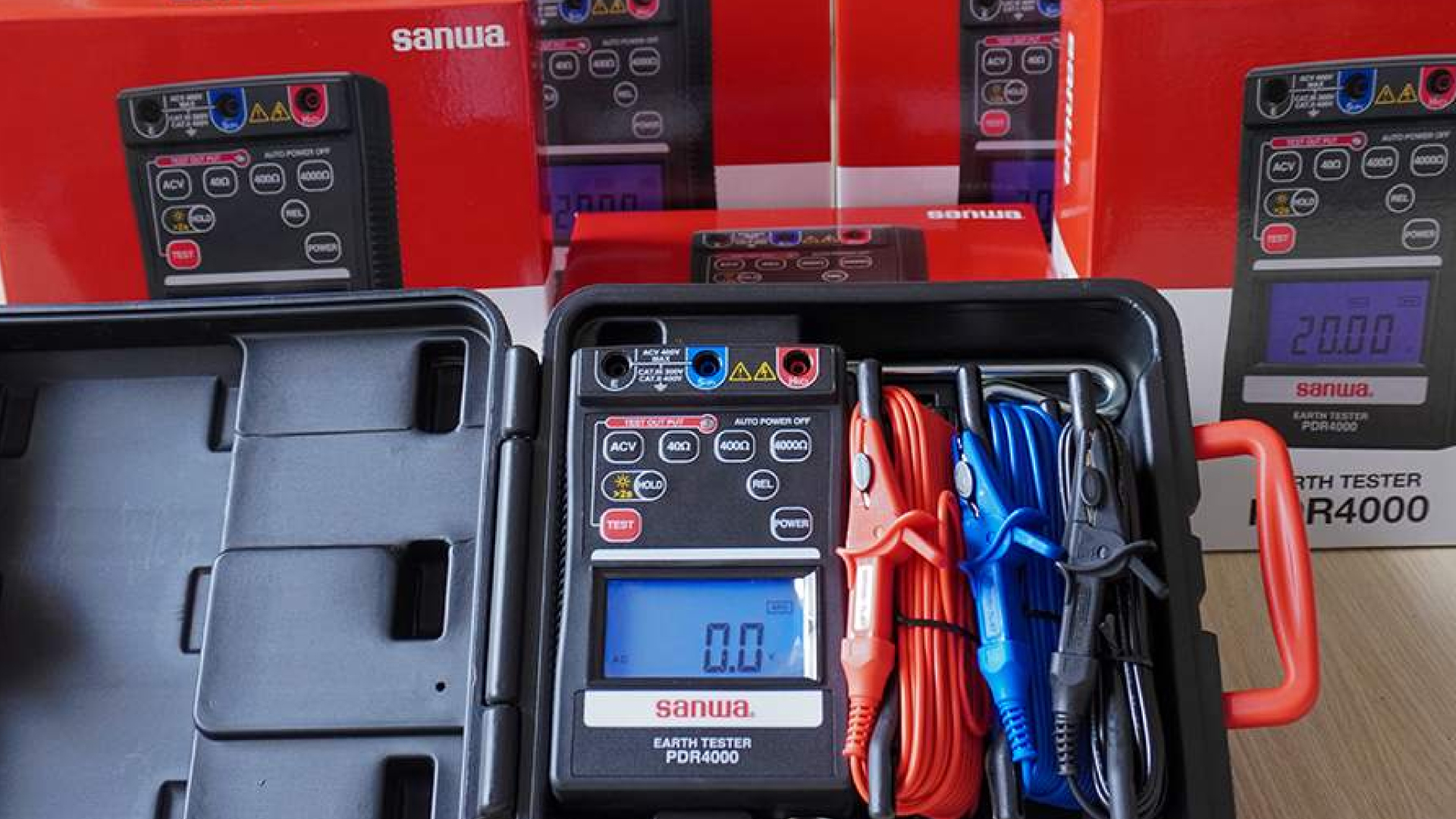
An Earth Tester, also known as a Ground Resistance Tester, is an electrical instrument used to measure the resistance of the earth connection in grounding systems. This device helps determine whether a system’s earthing is working correctly and safely dispersing electrical energy into the ground.
Earthing is crucial for:
-
Preventing electrical shock hazards
-
Protecting equipment from fault currents
-
Stabilizing voltage levels in power systems
-
Ensuring lightning protection systems function properly
How Does an Earth Tester Work?
An Earth Tester works by passing a small current through the earth electrode and measuring the voltage drop. This data helps calculate the resistance of the grounding system using Ohm’s Law (Resistance = Voltage ÷ Current).
There are different types of testing methods, including:
-
3-point method (Fall-of-potential)
-
4-point method (Wenner method for soil resistivity)
-
Clamp-on testing (without disconnecting the earth)
Each method has specific use cases depending on the environment, the grounding configuration, and how accessible the electrodes are.
Why is Earth Resistance Testing Important?
Over time, ground resistance can increase due to corrosion, soil conditions, or mechanical damage. High earth resistance can prevent fault currents from being safely directed into the ground, which can cause:
-
Fire hazards
-
Electric shock
-
Equipment failure
-
Downtime in critical systems
Routine testing with an Earth Tester helps ensure the grounding system is effective and compliant with safety standards (such as IEEE, NEC, or IEC guidelines).
Applications of Earth Testers:
Earth Testers are widely used in:
-
Industrial electrical installations
-
Power plants and substations
-
Telecom towers and data centers
-
Lightning protection systems
-
Renewable energy installations (solar, wind)
Types of Earth Testers:
There are various models available, including:
-
Analog Earth Testers
-
Digital Earth Testers
-
Clamp-type Earth Testers
-
Multifunction Testers (with insulation and continuity test features)
Each type serves specific industrial or field testing needs, offering features like data logging, automatic range selection, and rugged design for outdoor use.
Final Thoughts:
An Earth Tester is a critical tool for anyone responsible for electrical safety and system reliability. Whether you are an engineer, technician, or facility manager, regular ground resistance testing should be part of your preventive maintenance plan.
Proper earthing can be the difference between a safe, functional system and a costly, dangerous failure. Investing in a quality Earth Tester and knowing how to use it is a smart step toward ensuring electrical safety and regulatory compliance.


